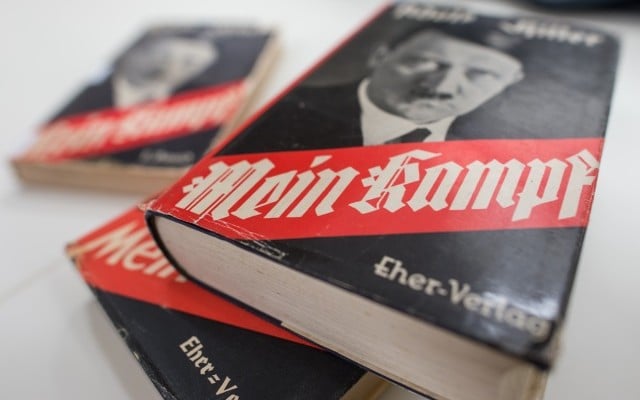World Jewish Congress President Ronald Lauder believes the reprinting of Hitler’s Mein Kampf is “unnecessary” and is not in any way beneficial.

WSJ President Ron Lauder. (Courtesy)
World Jewish Congress (WJC) President Ronald Lauder opposed the reprinting of Hitler’s Mein Kampf,’ saying an annotated edition of the book that hit the bookstore shelves on Friday was “unnecessary.”
Lauder said academics should study the book, and the impact it had ought to be taught to students, but he questioned whether a new edition of the book was necessary to do so, given that the text was easily accessible for researchers and that more than 12 million copies had been sold prior to 1945, making its author a rich man.
“Mein Kampf should have been properly studied 90 years ago,” Lauder declared. “Hitler’s lies should have been rebutted back then. Alas, we all know that because that didn’t happen Hitler felt emboldened to embark on the biggest mass murder in the history of mankind. Hence it would be best to leave Mein Kampf where it belongs: the poison cabinet of history.”
“Mein Kampf was the playbook for World War II and for the Holocaust,” the WJC president added, “it continues to be widely available, both online and in second-hand book stores. Enough of this vile and toxic book has been printed. Germany rightly prohibits the publication and distribution of books that incite to hatred, and among them is Mein Kampf.”
“I don’t see the need for a critical edition. Unlike other works that truly deserve to be republished as annotated editions, ‘Mein Kampf’ does not. Already, academics, historians and the wider public have easy access to this text.
“Yes, Mein Kampf should be studied, and it is appropriate to teach German students about this book and the terrible impact it had,” he said, “but the idea that to do so requires an annotated edition with thousands of pages of text is nonsense. This project may be well-intended, but the Bavarian government was right not to allow its republication until the expiry of the copyright, or to support a new edition.”
Hitler wrote Mein Kampf — or “My Struggle” — after he was jailed following the failed 1923 coup attempt known as the Beer Hall Putsch. Millions of copies were printed after the Nazis took power in 1933.
For 70 years since the Nazi defeat in World War II, copyright law has been used in Germany to prohibit the publication of “Mein Kampf” — the notorious anti-Semitic tome in which Adolf Hitler set out his ideology.
This changed on Friday when a new edition with critical commentary, the product of several years’ work by a publicly funded institute, hit the shelves.
While historians say it could help fill a gap in Germans’ knowledge of the era, Jewish groups are wary, and German authorities are making it clear that they still won’t tolerate any new Mein Kampf without annotations.





